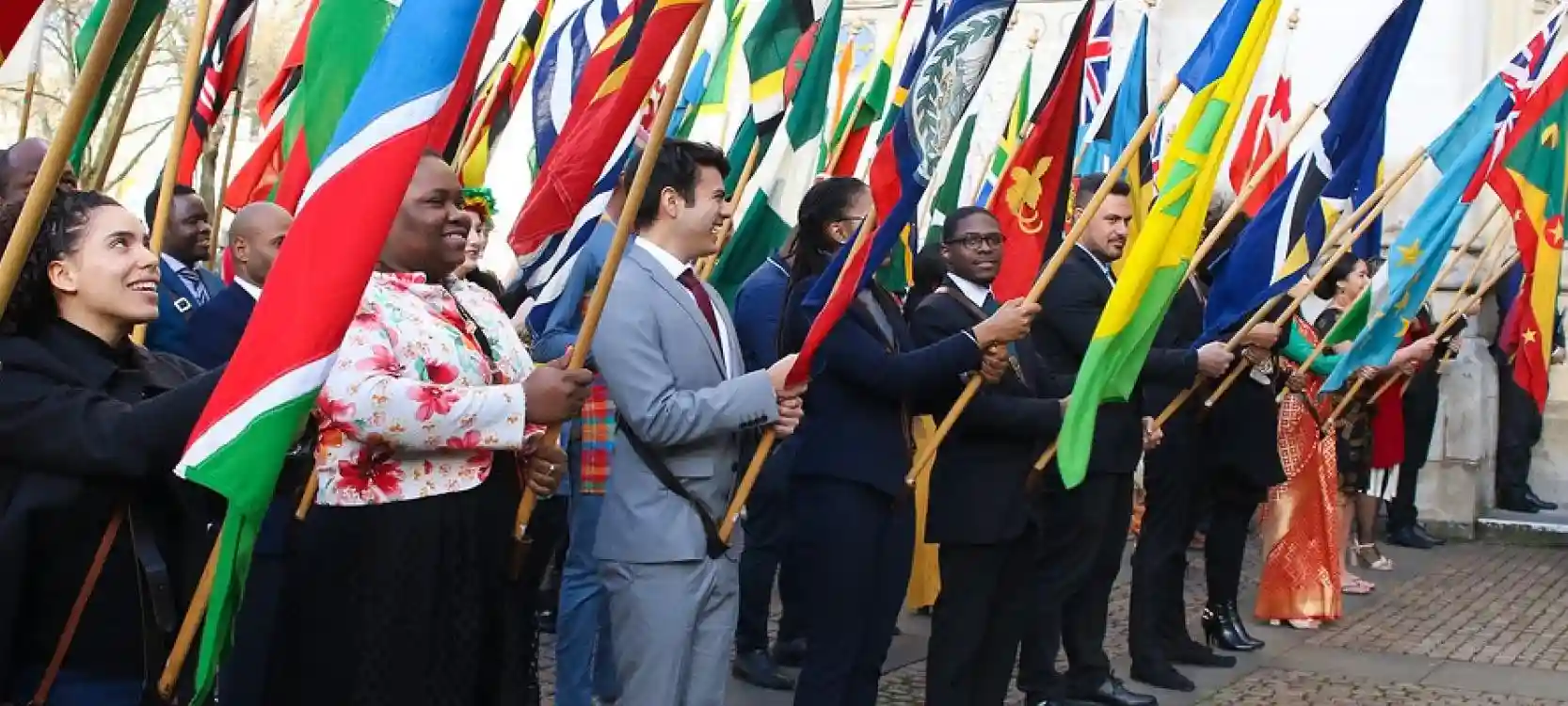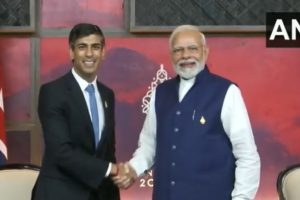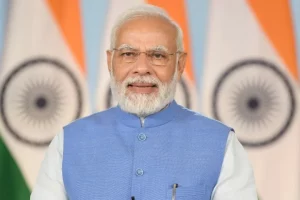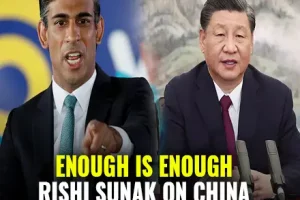The origin of the Commonwealth is an outcome beginning the decline of the United Kingdom (UK) as a dominant global power. The First World War demonstrated two essential things to the world. First, Europe was as fragile as it was during the hundred-year war in the 1400s. Second, it ushered in the arrival of the United States on the world stage, an erstwhile colony of the UK. Many researchers contend that the UK realized it would be strategically important for it them to start treating their colonies better to maintain control over their affairs. As a result, the Statute of Westminster (1931), which served as the Commonwealth’s primary founding instrument, mandated that all Commonwealth members must be the UK’s dominions. The London Declaration in 1949, which allowed republics and monarchical countries to join the Commonwealth, provided they accepted King George VI as the “Head of the Commonwealth,” ended the requirement of being a UK Dominion.
The Commonwealth principles, however, were extended to the social, political, and economic spheres in the 1960s. Therefore, given that South Africa did not adhere to the social idea of racial integration, it was expelled from the Commonwealth.
The 1971 Singapore Declaration, which required all signatories to uphold the values of global peace, liberty, human rights, equality, and free commerce, sharpened the common guidelines of the Commonwealth even more. However, the primary outcome of the Singapore declaration was ‘rejecting coercion as an instrument of policy.’ This was also when the Persian Gulf Residency ended, marking an end to direct British domination in the Gulf. Specifically, the Singapore declaration clearly stated that the Commonwealth could not forcefully enforce its core values on its member states and could not use coercion. However, understanding the implications of the Singapore declaration, which would preclude the UK from interfering with the internal affairs of the Commonwealth members, the UK pushed for the Harare Declaration in 1991, which again reintroduced mechanisms and conditions under which the UK could get involved in the internal affairs of the Commonwealth member states.
The Harare Declaration provided an uncodified constitution to the commonwealth and also further specified the membership criterion. The Millbrook Commonwealth Action Programme (MCAP)), 1995, further defined this by requiring the Commonwealth to be concerned with its members’ domestic affairs. MCAP helped the Commonwealth Secretariat get its headquarters at London’s Marlborough House which gave it further authority to reward members who followed the rules and penalize those who disobeyed them. MCAP established the Commonwealth Ministerial Action Group (CMAG), and it is tasked with reviewing and looking into situations of potential violations and recommending appropriate action against member states. For instance, Zimbabwe was allegedly punished for a violation in 2002. Later Zimbabwe withdrew from the commonwealth membership in 2003.
#CoronationCountdown 👑 #KingCharlesIII is the head of state of the #UK 🇬🇧 and 14 #Commonwealth countries.
Rumours have it that some of the nations want to become republics after #ElizabethII‘s death.
So is it true? Philip Turle and @GenieGodula take a look ⤵️ pic.twitter.com/AvZ4fEpI2W
— FRANCE 24 English (@France24_en) March 29, 2023
Table 1 summarizes the key advances in the conceptualization of the Commonwealth.
Balfour, 1926
The committee, led by Lord Arthur Balfour, investigated and reinterpreted the legal connection between self-governing nations of the British Empire. According to the study, Great Britain and the Dominions are a set of autonomous communities that are regarded as equals, under no means subject to each other in terms of their external or internal affairs, and that are entitled to membership in the Commonwealth.
London, 1949
The Prime Ministers and Secretaries of State for external affairs of the UK, Australia, New Zealand, India, Pakistan, and Ceylon met in London to discuss issues brought on by India’s acceptance of a Republic regime and desire for India to be part of the Commonwealth. Moreover, it reflected Commonwealth’s longstanding ability to reinforce its shared goals while modifying its organizational structure and operating procedures to suit changing conditions. It underlined its members’ liberty and equal treatment, not merely in how they relate to the Crown as Head of the Commonwealth, by dropping the “British” prefix from the organization’s identity. While allowing India to replace the Monarch as its head of India, the London Declaration highlighted that the crown was to be recognized as “the emblem” of the Commonwealth association. Nonetheless, India must acknowledge the King as Head of the Commonwealth.
Singapore, 1971
This declaration claimed that inter and intra-national understanding would contribute to eradicating discriminating people based on racial, ethnic, and religious distinctions. The main objective was to promote the free flow of international trade on terms equal to all while also considering the unique needs of developing countries. Rejecting coercion as a policy tool was the main outcome of this declaration. This was an important declaration which emphasized the limits of influence of head of commonwealth, UK.
Harare, 1991
This declaration laid a plan for the Commonwealth’s future, including a commitment outlining priorities. Further, it declared that Commonwealth is a voluntary agreement of sovereign independent nations liable for implementing their respective policies, collaborating and working together in the best interest of one’s citizens, and the endorsement of global understanding and harmony. It re-introduced that influence element of commonwealth. In other words, commonwealth could directly concern itself with any member nation if they find them violating the commonly held principles.
Millbrook, 1995
Post Harare, pathway was established for preservation and advancement of the commonwealth association’s core political values, including democratic structures and procedures, fundamental human rights, the legal system, judicial independence, and honest and ethical government. It was further decided to create a Commonwealth Action Programme during our retreat at Millbrook to more effectively carry out the pledges made in the Harare Commonwealth Declaration. There are three sections to this program:
We are advancing the core political principles of the Commonwealth, encouraging sustainable growth, and facilitating consensus-building. In other words, with establishment of core political principles one could judge deviation from those more precisely and accordingly a rationale to reward and punish those deviating from those principles was created.
Edinburgh Declaration, 1997
Extreme poverty and rising inequality make establishing global peace, security, and social stability impossible. It campaigned for special measures for countries’ integration, particularly for small states and least-developed nations, to overcome unequal development and solve the progress currently threatening many nations.
Colombo Declaration, 2013
Understanding the Commonwealth’s top priorities should be achieving inclusive and equitable progress. New elements such inclusive and equity as defined by UK was introduced as an element. Thereby, creating new standards for commonwealth nations to follow. Commonwealth started to examine issues of member state’s efforts to ensure benefits are distributed fairly and to raise everyone’s quality of life and economic success. Again, the definitions of fairness, quality of life, and economic success were that of UK. The differences across nations were not accounted.
Declaration on Commonwealth connectivity, 2018
To help Commonwealth nations meet the Sustainable Development Goals, it was emphasized how important trade and investment between nations are for increasing earnings and job opportunities. While the goals are largely aspirational, these do not account for differences in the level of development and economic constraints of least developed, under-developed, and developing members.
Given the expanded nature and scope of the Commonwealth and its ability to use coercive power against the member states, one wonders what member states gain from being Commonwealth members. A literature review in this domain indicates that most African nations are probably part of the Commonwealth on account of being former colonies. These countries engage in trade, free trade, and favourable immigration policies with the UK. In many situations, the UK can represent the countries’ interests by providing an embassy/consulate presence in various countries where these specific countries do not have their embassy/consulate.
Past research in the domain of the Commonwealth indicates that there are two conflicted views on the commonwealth. The first viewpoint presents the case of Gulf states which have a strong relationship with UK and have chosen not be commonwealth members. Most of middle-east is strongly entrenched in UK economy. In 1960s, Kuwaiti averted a financial crisis because of Pound Sterling reserves. Reciprocally, Qatari investment gives a significant backing to troubled UK assets and UK banks. In other words, Gulf States and UK have both benefitted each other in terms of bilateral trade and economic stability despite not being formally connected through Commonwealth.
In addition, UK offers military support to the middle-east despite no connection with Commonwealth. UK has a Joint Logistics Support Base in Oman, HMS Juffair, a permanent UK naval base in Bahrain, an Airbase in Qatar, military presence in Saudi Arabia and UK is also considering have a base in Kuwait, the British military retains a significant presence in the Gulf.
Second view demonstrate that a few countries entered Commonwealth voluntarily and not for economic or military reasons. A very rich and prosperous Brunei joined in commonwealth in 1984 to counter a powerful China and to get UK’s diplomatic and political network to safeguard itself. Also, Rwanda, which was formerly a Belgian colony, joined the Commonwealth to help it get global recognition through enhancement of international ties using UK’s diplomatic prowess. To satisfy the commonwealth, it quickly anglicized its education system and aligned its economy towards UK. More recently Gabon and Togo, who do not have any direct historical ties to British colonial empire, have become members.
There are 56 Commonwealth countries. Four of them were never part of the empire, only 15 countries and fewer than 10% of the Commonwealth population still have the Queen as head of state. The royals didn’t set it up, they don’t run it, it doesn’t need them. #AbolishTheMonarchy. pic.twitter.com/jvsmhx8jMU
— Republic (@RepublicStaff) April 6, 2023
Interesting India being in commonwealth does not fit with in either view. Therefore, it would interesting to examine why India decided to remain a commonwealth member despite its long and bloody struggle to earn freedom from the British monarchy? According to a seminal article in Journal of Commonwealth and Comparative Politics authored by RJ Moore in 1981, it can be concluded that Lord Mountbatten was largely responsible for ensuring that India stays in the Commonwealth.
Moore analysed and cited several correspondences, minutes of the meetings, official records among others to professor his contentions in the research article. Moore contends that Lord Mountbatten negotiated with Baldev Singh (Defence Minister in Interim Government of India), Odisha Governor CL Tiwari, Prime Minister Nehru, and Secretary VP Menon in a series of interactions and, using guile, threats, and incentives, earned the resolution of the constituent assembly to be a member of the Commonwealth. Mountbatten could credibly convey the threat of isolation of India as most of the world at that time was either existing or erstwhile British colonies.
Records of time indicate that several political and non-political leaders indicated India should follow what Ireland had done. Ireland decided not to be part of the British Commonwealth and wanted to recognize and maintain a friendly relationship with the commonwealth. Furthermore, Moore contends through perusal of records that Mountbatten would parley with Baldev Singh, then the defence minister of India. His frequent communication was around the function of the Indian army if the British commissioned officers were to depart India. All officers at that time had King’s commission, and India would not be able to have ties to these officers if it was not part of the Commonwealth. All recognized at that point in time that the Indian army was vital to maintaining law and order situation as violence was predicted and likely to arise when the transfer of power took place. Britain really wanted India to be part of the Commonwealth.
The importance of India to Britain can be encapsulated in one quote of Lord Curzon in 1901 “as long as we rule India we are the greatest power in the world. If we lose it, we shall drop straightaway to a third-rate power.” So much so, since transfer of power entailed the partition of India, and the plan for this transfer of power was originally called Plan Balkan by the British. Finally, as per Viceroy’s personal report cited by Moore, Mountbatten even mooted the idea of some form of common citizenship for citizens of member states with the then-Indian bureaucracy and constituent assembly members of India to persuade Indian leaders to remain in the commonwealth.
As a result of these efforts, India became a member of the commonwealth via London Declaration. London declaration explicitly stated that the Government of India has finally agreed to establish itself as a “sovereign independent republic.” Still, it also asserted and reiterated India’s commitment to retaining her full membership in the Commonwealth of Nations and her acquiescence of The King as the mark of the voluntary expression of its self-governing member nations and, as such, the Head of the Commonwealth. The King is a symbol of free association! It appears to be a double entendre that one can enshrine democracy and democratic values through aristocracy.
As far as India is concerned, there is no real advantage in trade. No real benefit as far as travel is concerned. No real advantage as far as defense is concerned. No real advantage as far as support is concerned. The obtuse attitude of the British government towards those who threaten the sovereignty of India is evidence that there is no real advantage of obtaining even advocacy from the commonwealth secretariat. On the contrary, the Commonwealth charter provides UK with a pulpit to comment on the internal affairs of other countries.
The 2012 Commonwealth charter contained sixteen core beliefs, namely, “democracy, human rights, international peace and security, tolerance, respect and understanding, freedom of expression, separation of powers, the rule of law, good governance, sustainable development, protecting the environment, access to health, education, food and shelter, gender equality, the importance of young people in the Commonwealth, recognition of the needs of the small states, recognition of the needs of the vulnerable states, and lastly, the role of civil society.”
Recently, we have witnessed British Parliament and British politicians commenting and conveying their concerns about Indian democracy, rising nationalism, governance, law order, gender equality, the youth of India, freedom of the press, and freedom of speech, among other topics. Commonwealth provides the UK with a platform to do so as the commonwealth has those core beliefs. The interpretation and application of those core beliefs are very much the interpretation of the British. In other words, how and how those core beliefs are lived in a given member country is up for assessment through a British yardstick.
Consequently, many contend that withdrawal from the commonwealth could be a way forward as it removes this vantage point view for the British government and politicians to comment on and discuss the everyday occurrences in India. It may be interesting to note that even Pakistan had withdrawn its commonwealth membership from 1972 till about 1989. Pakistan’s membership was also revoked and reinstated on more than one occasion. At the very least, the government of India must examine the pros and cons of exiting the commonwealth. COMEXIT (Commonwealth exit) denotes India’s exit from the commonwealth. COMEXIT needs a serious discussion at the highest level.
A survey of 2003 students in higher education institutions in India indicates that 94.5% of respondents felt India should exit the commonwealth and COMEXIT will be true signal of complete independence from British dominance. Of those who supported the exit, 72% stated that they support COMEXIT as India has today attained higher standing on the global platform that UK. 62% of the respondents supported COMEXIT because India is fifth largest economy. 60% of respondents supported COMEXIT because India is a large country with self-sufficient resources. 54% of respondents supported COMEXIT as they believed the commonwealth as institution is parochial and a remnant of the colonial era.
Although, the results of the survey indicates that there is a strong support for COMEXIT but I believe it may be more useful for India to not severe ties with commonwealth but increase its influence in the commonwealth. In recent times though, there have some changes, commonwealth’s official website indicates that the head of commonwealth is symbolic one with no fixed term and the position is not hereditary. In addition, the website states that future heads will be chosen by members of Commonwealth.
Does this provide an opportunity for India? I certainly think so. India is already holding the presidency of G20 and I am sure India would like to leave a positive and lasting legacy through it presidency. However, the next assignment for India and Indian diplomacy could be to gain the leadership of Commonwealth. Could it be that Prime Minister of India is head of Commonwealth next year? It certainly should be India’s aspiration. At the very least, the head of the commonwealth should be on rotation. Commonwealth could augment its contribution by defining it purpose with greater clarity through a non-Britain centric approach.
(Professor Dheeraj Sharma is Director IIM Rohtak. Views expressed are personal and exclusive to India Narrative)




















